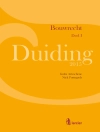Between 1632 and 1748, Virginia’s General Assembly revised the colony’s statutes seven times. These revisals provide an invaluable opportunity to gauge how governors, councilors, and burgesses created a hybrid body of colonial statute law that would become the longest strand in the American legal fabric. In Statute Law in Colonial Virginia, Warren Billings presents a series of snapshots that depict the seven revisions of the corpus juris the General Assembly undertook. In so doing, he highlights the good, the corrupt, and the loathsome applications of broad legislative authority throughout the colonial era. Each revision was built on prior written law and embodies the members’ legal knowledge and statutory craftsmanship, revealing their use of an unbridled discretion to further the interests they represented. Statutes undergirded Virginia’s evolving legal culture, and by examining these revisals and their links, Billings casts light on the hybrid nature of Virginia statute law and its relation to English laws.
Mục lục
Acknowledgments
Preface
Author’s Note
1. Beginnings and the Acts of 1623/24
2. Sir John Harvey and the Revisal of 1632
3. Sir William Berkeley and the Revisal of 1643
4. A New Constitutional Order: The Revisals of 1652 and 1658
5. Safeguarding Virginia’s Autonomy: Sir William Berkeley, Francis Moryson, Henry Randolph, and the Revisal of 1662
6. The Long Road to the Revisal of 1705
7. Sir William Gooch’s Gift: The Revisal of 1748
8. Endings
Notes
Bibliographic Essay
Index
Giới thiệu về tác giả
Warren M. Billings, Distinguished Professor Emeritus of History at the University of New Orleans, is author of Magistrates and Pioneers: Essays in the History of American Law












